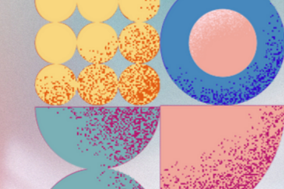Our Social Psychology Group is a dynamic hub for cutting-edge research and teaching, with a global reputation for excellence. Our academics conduct some of the most-cited and influential research in the field, have received prestigious editorial appointments, and hold numerous national and international awards. Our research encompasses a wide array of topics, addressing some of the most pressing social issues of our time.
Key Publications
We have a highly active research group, and frequently publish papers across all areas of social psychology in the most prestigious journals. Some key publications from the social psychology group in recent years include:
, , , & (2023). Imagined and extended contact experiences and adolescent bystanders’ behavioral intentions in homophobic bullying episodes. Aggressive Behavior, 49, 110–126. https://doi.org/10.1002/ab.22059
Bagci, S., Turnuklu, A., Tercan, M., Cameron, L., & Turner, R. (2023). Have some confidence in contact: Self-efficacy beliefs among children moderate the associations between cross-group friendships and outgroup attitudes. Journal of Applied Social Psychology, 53, 101–111. https://doi.org/10.1111/jasp.12929
Biddlestone, M., Green, R., Douglas, K., Azevedo, F., Robbie, S., & Cichocka, A. (2024). Reasons to believe: A systematic review and meta-analytic synthesis of the motives associated with conspiracy beliefs. Psychological Bulletin. DOI: 10.31234/osf.io/rxjqc
Cichocka, A., Marchlewska, A., & Cislak, A. (2024). Self-worth and politics: The distinctive roles of self-esteem and narcissism. Advances in Political Psychology, 45 (S1), 43-85. doi: 10.1111/pops.12897
Cichocka, A., Sengupta, N., Cislak, A., Gronfeldt, B., Azevedo, F., & Boggio, P.S. (2022). Globalization is associated with lower levels of national narcissism: Evidence from 56 countries. Social Psychological and Personality Science, 14(4), 437–447. https://doi.org/10.1177/19485506221103326
Douglas, K., & Sutton, R. M. (2024). The social psychology of conspiracy theories: Key insights and future challenges. Advances in Experimental Social Psychology. https://doi.org/10.1177/0963721417718261
Douglas, K., & Sutton, R. M. (2023). What are conspiracy theories? A definitional approach to their correlates, consequences and communication. Annual Review Of Psychology, 74, 271-298. doi:10.1146/annurev-psych-032420-031329
Everett, J.A.C. , Colombatto, C., …. & Crockett, M. (2021). Moral dilemmas and trust in leaders during a global health crisis. Nature human behaviour, 5(8), 1074-1088. DOI: 10.1038/s41562-021-01156-y.
Giner-Sorolla, R., Montoya, A. K., Reifman, A., Carpenter, T., Lewis, N. A., Jr., Aberson, C. L., Bostyn, D. H., Conrique, B. G., Ng, B. W., Schoemann, A. M., & Soderberg, C. (2024). Power to detect what? Considerations for planning and evaluating sample size. Personality and Social Psychology Review, 28(3), 276-301. https://doi.org/10.1177/1088868324122832
Hopkins-Doyle, A., Petterson, A. L., Leach, S., Zibell, H., Chobthamkit, P., Binti Abdul Rahim, S., … & Sutton, R. M. (2024). The misandry myth: An inaccurate stereotype about feminists’ attitudes toward men. Psychology of Women Quarterly, 48(1), 8-37. https://doi.org/10.1177/03616843231202708
Isiminger, A., & Giner-Sorolla, R. (2024). Willingness to use moral reframing: Support comes from perceived effectiveness, opposition comes from integrity concerns. Social Psychological Bulletin, 19, 1-28. https://doi.org/10.32872/spb.13053
Liu, D., & Giner-Sorolla, R. (2024). Bad people alert: The expression of disgust signals its target’s bad moral character. Collabra Psychology, 10 (1): 116193. https://doi.org/10.1525/collabra.116193
Myers, S. & Everett, J.A.C (2025). People expect artificial moral advisors to be more utilitarian and distrust utilitarian moral advisors. Cognition, 256, 106028. DOI: 10.1016/j.cognition.2024.106028
, , , , , , & (2023). When to intervene and take a stand: Evaluating bystander roles in intergroup name-calling contexts. Journal of Community & Applied Social Psychology, 33(2), 252–269. https://doi.org/10.1002/casp.2675
Sengupta, N. K., Hammond, M. D., Deak, C. K., & Malhotra, R. S. (2024). Ambivalent Sexism and Tolerance of Violence Against Women in India. Psychological Science, DOI: 09567976241254312.
Spinner, L., Cameron, L., & Tenenbaum, H. R. (2022). Gender Stereotypes in Young Children’s Magazines. Mass Communication and Society, 26(1), 147–170. https://doi.org/10.1080/15205436.2022.2052902
Stoeber, J., Dhont, K., & Salmen, A. (2024). Individual differences in effective animal advocacy: Moderating effects of gender identity and speciesism. Anthrozoös, 37(3), 573-585. https://doi.org/10.1080/08927936.2024.2314389










